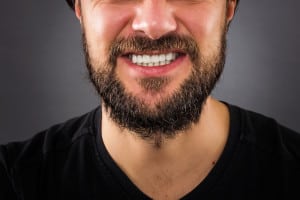 One in three people suffer from bruxism, according to a study. Are you one of those patients who grinds their teeth? Even though bruxism is prevalent, not everyone has heard the term before or is aware of the condition. Bruxism is habitual grinding and clenching of your teeth. The difference that sets bruxism apart? The habit is involuntary; you often do not realize you are grinding your teeth until you notice the symptoms and signs you might have bruxism. Treating bruxism can reduce jaw pain, protect your teeth, and offer dental headache pain relief.
One in three people suffer from bruxism, according to a study. Are you one of those patients who grinds their teeth? Even though bruxism is prevalent, not everyone has heard the term before or is aware of the condition. Bruxism is habitual grinding and clenching of your teeth. The difference that sets bruxism apart? The habit is involuntary; you often do not realize you are grinding your teeth until you notice the symptoms and signs you might have bruxism. Treating bruxism can reduce jaw pain, protect your teeth, and offer dental headache pain relief.
What is Bruxism?
Bruxism is when you unconsciously grind, gnash or clench your teeth. Bruxism most often occurs as you sleep, which can make it even more difficult to recognize, because you’re not awake while you’re grinding your teeth. What causes bruxism? Several factors can bring on bruxism, including stress, anxiety, missing teeth, misaligned bite, and sleep apnea.
5 Signs You Might Have Bruxism
1. Headaches: Do you wake up with a morning headache? Do you experience head pain throughout the day? Your headache could be caused by teeth grinding. Treating your bruxism could be prevent dental headaches and offer headache relief.
2. Jaw pain: Because teeth grinding exercises and exhausts your jaw muscle and jaw joint, jaw pain and soreness is one of the most common symptoms of bruxism.
3. Worn teeth surfaces: Regular teeth grinding wear downs the tooth enamel and teeth surfaces.
4. Damaged teeth: Beyond just worn surfaces, teeth grinding can also lead to damaged teeth and damaged dental restorations.
5. Increased sensitivity: Over time, bruxism can lead to increased tooth sensitivity.
Bruxism Treatment
There are two options for bruxism treatment, both of which are oral appliances. One option is a mouth guard. Mouth guards for teeth grinding treatment are custom-made to fit you comfortably. You wear the mouth guard as you sleep to prevent teeth grinding and to protect your teeth. Splints are another option. Splints fit over the front of your teeth and readjust the position of your jaw.


